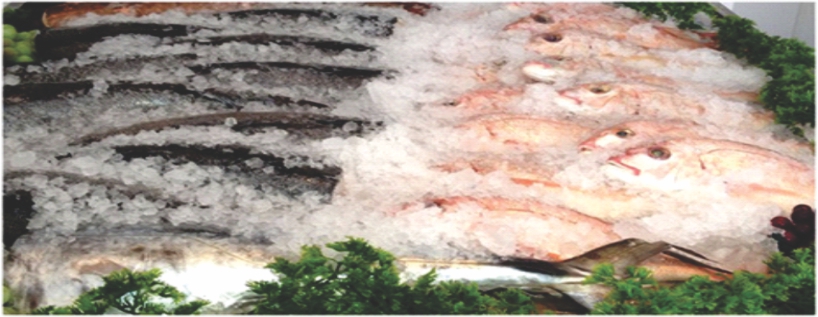-
16A, Ijaiye road, Ogba
Lagos -
+234 803 5777 577
info@tanphija.com


The International Institute of Refrigeration recommends a storage temperature of -18°C for lean fish such as cod and haddock and -24°C for fatty species such as herring and mackerel. The code also recommends that for lean fish intended to be kept in cold storage for over a year, the storage temperature should be -30°C.
Cold store operators can seldom be sure to store only one species or type of fish, or to store it for a limited period only. Cold stores built for storage of fish should preferably be able to operate at -30°C but can be operated at a higher temperature if circumstances and relevant codes or recommendations allow. Our typical fish storage solutions are between 0/+8 degrees and -18/-30 degrees as requested.
Tanphija Blast freezers are sometimes referred to as shock freezers. The idea of this type of freezer is to rapidly bring down the temperature of foodstuffs and fresh produce, freezing them very quickly. It is different from conventional cold room, one is freezing and the other is deep freezing. Blast freezer does very fast reach freezing point in the shortest hours of operations. It ranges within usual temperature of -20 to -45 degree. Aside of the integrity, quality and taste of the food that must be maintained, blast freezing also offers health and safety benefit in that extreme cold, by slowing down the growth of bacteria. This is possible provided that the food is handled safely and then put into the freezer immediately after preparation; there is a greatly reduced risk of contamination
have been leading the way for investors in the cold storage industry for many years in Nigeria. The company offers “Turn-key Cold Storage” committing to services including all stages of project designing, manufacturing, assembling and service-supports system. We provides environment closest to natural conditions of food, and extend the shelf life of foods. Tanphija understand cooling devices operate up to the level they are set to, and stop when they reach the required cooling temperature. This cycle is continually repeated for the ambient temperature to remain stable. These units go into defrost mode at different times a day in order to melt the frost formed on them. A cold storage unit goes in and out of this cycle for compressor, ventilator and defrosting about 45,000 times a year. Two types of Sandwich Panels; Male & Female, and Cam lock type
Energy consumption of cooling units varies by 50% in summer and winter. Predicting how much energy a cold room will use is difficult; as for managing it, it is possible. Although price pressures in the market, we see to it that we satisfied our clients. Tanphija has a wide geographic distribution of its products throughout the country and we maintained healthy business relationship with our client’s